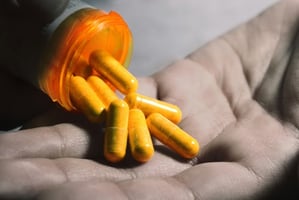Gamifying Mobile Health in Psychotherapy May Help Older Patients With Depression
|
APA Responds to White House Announcement on Autism “It is essential that the administration prioritizes evidence-based support for individuals on the autism spectrum and invests in long-term comprehensive research about the disorder.” READ THE FULL STATEMENT |
Gamifying psychotherapies that are augmented with mobile health technology may help older patients with depression stay engaged with their treatment and improve their symptoms, a study in the American Journal of Geriatric Psychiatry has found. Gamification involves incorporating elements of game design such as points, challenges, and rewards into non-game contexts, with the goal of improving engagement, participation, and motivation.
Yuqing Qiu, M.S., of Weill Cornell Medicine, and colleagues combined data from three clinical trials of psychotherapies for treating late-life depression: the REDS trial for senior-center clients, the RELIEF trial for primary care patients with chronic pain, and the PROTECT trial for people who have experienced elder abuse. The psychotherapies in each trial were augmented with mobile health technology and consisted of nine weekly sessions and between-session daily homework. Participants reported how often they completed their homework and were assessed four times over 12 weeks using the Montgomery-Åsberg Depression Rating Scale (MADRS). The mean baseline MADRS was 20.67, indicating moderate depression.
There were two phases in each trial, both of which involved the same psychotherapy with similar mobile health technology. However, the second phase was gamified and incorporated points, levels, and rewards to motivate participants to finish their daily homework. There were 102 participants (mean age 69.4 years) with 49 in the first phase and 53 in the second.
At 12 weeks, the researchers found that participants who received gamified therapy had more than eight times the odds of completing their daily homework compared with those whose therapy was not gamified. In addition, MADRS scores dropped a mean of 9.58 points in the group that received gamified therapy, compared with 4.73 in the non-gamified psychotherapy group.
“These findings imply that gamification may provide a potential solution to the crucial challenge of low adherence in [mobile health] psychotherapies, while simultaneously enhancing treatment outcomes for late-life depression,” the researchers wrote. “This could promote the broader adoption of [mobile health] psychotherapies among older adults, helping to close the gap between the growing demand for mental health care and the limited services available for this population.”
For related information, see the Psychiatric Services article “The Staying Power of Mental Health Apps.”





